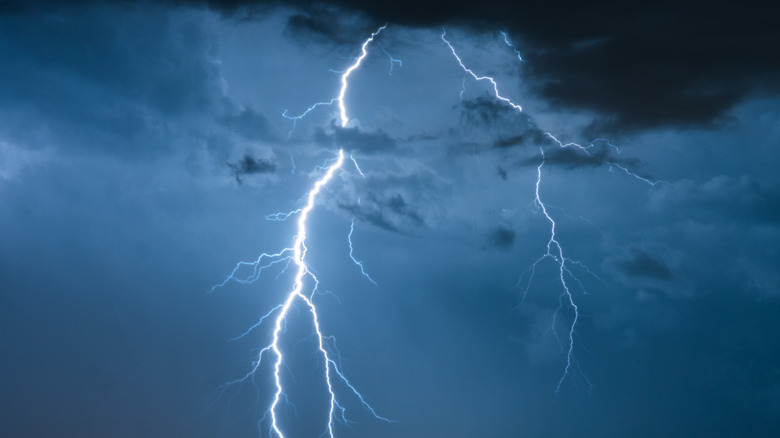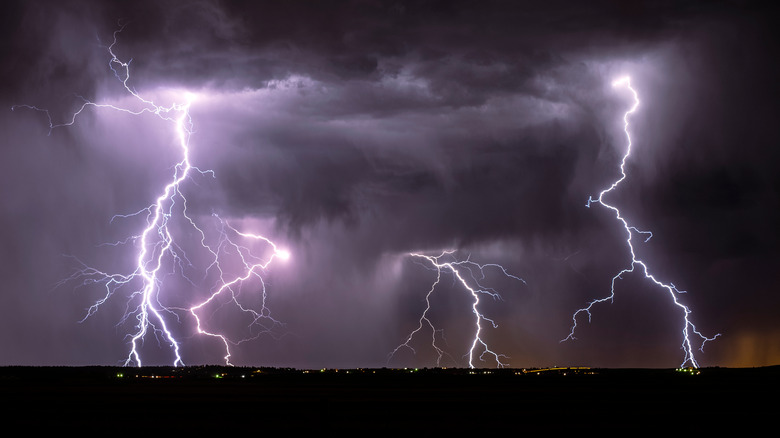The Myth About Lightning You Need To Stop Believing
Old wives' tales, urban legends, and scientific misunderstandings can persist for generations, if not centuries. Most of the time, they're harmless. For example, you may have heard that we only use 10% of our brain (not true, according to Medical News Today). Or that you should wait a period of time after eating before getting into the water, lest you get cramps and drown (also not true, per the Mayo Clinic). Believing in or even abiding by myths such as these is going to be, at worst, a minor inconvenience.
However, some of these myths, if you abide by them, can be downright dangerous. For example, you may have heard that you should try to suck out the venom if a companion is bitten by a snake, which, if you tried it, would just endanger both of you (according to the Centers for Disease Control and Prevention).
You may also have heard the myth that lightning never strikes the same place twice. However, not only is that not true, but if you were to take that belief to its logical conclusion, you could very well be risking injury or even death.
Yes, lightning can (and often does) strike the same place twice
On the surface, the idea that lightning never strikes the same place twice seems to make sense. After all, a storm can cover hundreds of square miles, and if lightning strikes one particular place, the next strike could be miles away, as Britannica reports. And while true, that doesn't mean that lightning can't — and won't — strike exactly the same place again, be it seconds later or centuries later.
Further, tall objects, such as trees or skyscrapers, make attractive targets for lightning strikes. Indeed, the Empire State Building, by way of example, is struck by lightning an average of 25 times per year, according to Spectrum News.
What this means in a practical sense is that when there's a lightning storm outside, you are not safe anywhere except inside — preferably in a place with a lightning rod to prevent the bolt from setting the building on fire. Further, according to the Insurance Information Institute, once inside, you should stay away from windows, electrical appliances, and plumbing.

